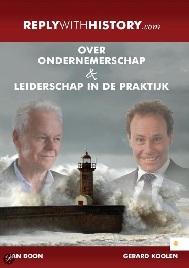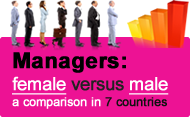86. The origin of luck

Dear Jan
The English word luck comes from the old Dutch word ‘gheluc’ (in modern Dutch ‘geluk’) and it means chance, happiness, luck, bliss, prosperity, fortune, and success and is mainly seen as an emotion. ‘Geluk’ means being favored by an unforeseen event, i.e. prosperity that you accrue without having had any influence on it. I think every entrepreneur is pursuing happiness (or fortune). This occurs, for example, when we achieve our goals. If we are satisfied with the results of our work, we are happy. And in that sense, happiness is ‘makeable’. A special feature is that, because happiness is an emotion, it is interpreted differently by everyone. For example, recently we received a large order from a good customer. The task is very complex and almost impossible to perform. I was very happy with the order. However, a fellow partner was very unhappy with this assignment. One person sees opportunities, where another sees only obstacles. For one person happiness or fortune is ‘makeable’ as he or she sees the possibilities and is able to turn these into concrete results and for another happiness or fortune is unattainable, because he or she will never take the necessary steps to reach a ‘happy’ outcome. And I think I know why this is.
Happiness within our company is within reach of everyone, because we know exactly what one needs to do, know and be capable of to be highly successful. Only to do all this – work hard, suffer disappointment, invest a lot of time; gain knowledge (extensive reading, learning, practising) and be competent (develop skills, practice, trial and error, improve) does not always add up to happiness. On the contrary, it is often accompanied by ‘blood, sweat and tears’.
And I think there is the crux. The difference between luck and no luck. My fellow partner will have no luck because he cannot motivate himself to struggle through a mountain of ‘action, knowledge and skill’ challenges. A ‘lucky’ person assesses all this as an exciting adventure in which his or her skills will be challenged to the maximum, which already represents a huge accomplishment before the result is achieved. If you want to achieve a goal, but you find the journey terrible, you will not be happy. When you find the journey amazing, it will be a lot easier to achieve the goal. And you will be happier while you are on the way to your goal.
To be happy and achieve challenging goals, you must postpone your immediate need to be happy because you need to make sacrifices. In addition, you should be able to derive happiness from the journey, in the sacrifices that you make, not just from achieving your goal. And for this you need a positive attitude and self-image and you need to be able to draw stimulation from your environment – no matter how positive or negative this is. Behold, the source of happiness!
Best regards,
Gerard












Leave a Reply